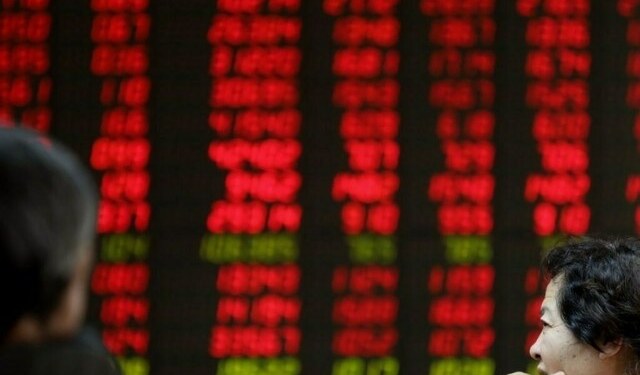SHANGHAI (Reuters) – China’s three largest bitcoin exchanges, whose activities have drawn increased scrutiny from the central bank, said they will begin charging trading fees effective Tuesday.
BTCC, Huobi and OkCoin said in separate statements on their websites late on Sunday that they will charge traders a flat fee of 0.2 percent per transaction.
Each of the statements said assessing fees will “further curb market manipulation and extreme volatility”.
The absence of trading fees has encouraged volumes and boosted demand at Chinese bitcoin exchanges. The New York Times, citing data by blockchain analysis firm Chainalysis, reported in late June that 42 percent of all bitcoin transactions took place on Chinese exchanges in the first half of the year.
The bitcoin price soared to near-record highs in the first week of this year, attracting attention from Chinese regulators. During 2016, China’s yuan currency weakened 6.6 percent against the dollar, its worst performance since 1994.
On Jan. 11, the People’s Bank of China (PBOC) launched spot checks on BTCC, Huobi and OkCoin to look into a range of possible rule violations, amid increasing government efforts to stem capital outflows and relieve pressure on the yuan.
A person familiar with the matter said the exchanges had not received direct instructions from the PBOC, but decided to introduce trading fees to align with its wishes to see the bitcoin market cool down.
On Monday morning, the price of bitcoin was down around 1 percent on the BTCC exchange to 6,317 yuan, equivalent to around $ 923.
BTCC Chief Executive Bobby Lee said last week that the three exchanges had discussed introducing trading fees.
($ 1 = 6.8427 Chinese yuan)
(Reporting by Brenda Goh; Editing by Richard Borsuk)








![[Geojit Comtrade] Daily report on Natural Rubber: December 4, 2012](https://img.globalrubbermarkets.com/2024/08/geojit-comtrade-daily-report-on-natural-rubber-december-4-2012.jpg?resize=120%2C86&ssl=1)
















